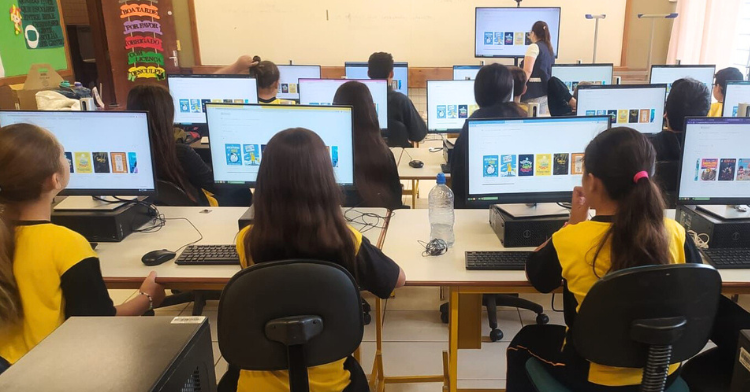
A recent decision by the Swedish Ministry of Education reinforces the risks to learning brought about by the classroom digitization policy adopted by the Ratinho Jr. While in the state network of Paraná only increases the pressure for the use of platforms, the Swedish country suspended an ambitious plan to digitize teaching.
“We are at risk of creating a generation of functional illiterates”, warned the Minister of Education, Lotta Edholm, after seeing the country’s score plummet in the International Study of Progress in Reading (PIRLS), an international exam that evaluates the reading performance of ( the) students.
According to an article published in the French newspaper, Le Monde, the manager concluded that the poor performance is a consequence of the uncritical way in which the country introduced digital resources in schools. Like what Ratinho Jr. is doing with schools in Paraná, over the last 15 years Sweden has replaced textbooks with computers, tablets, applications and technological platforms.
In Sweden, the negative consequences of this experiment were observed throughout the school community. Students have lost the habit of reading, teachers have no access to books and mothers, fathers and guardians are unable to help their children.

evidence
To reverse the situation, in addition to stopping the digitalization strategy, Lotha launched a book reintroduction program to recover students’ reading ability. Books have “advantages that no tablet can replace,” he argues.
The plan provides for an investment of 150 million euros by 2025. “The PIRLS report is a sign that we have a reading crisis in Swedish schools. In the future, the government wants to see more textbooks and less screen time in schools”, says the minister.
Reportedly, Lotha’s decision to abandon the ambitious digitization program was based on scientific evidence presented by more than 60 experts. “All the research on the brain in children shows that they don’t benefit from screen-based teaching,” he says.
UNESCO Alert
Although the Ratinho Jr. use the “student focus” discourse to justify the significant amount of digital tools imposed on teachers and students, Sweden’s decision is not the only one pointing out that this policy only benefits technology companies.
In a recent report released by Unesco, entitled “Technology in education: a tool at whose service?”, the agency also warns about the negative impacts of the introduction of technologies in education, without any dialogue or critical reflection.
The document is another one that calls into question the educational model adopted by the government of Paraná and highlights that technology alone does not guarantee good results. In Peru, for example, more than a million laptops were distributed without any impact on learning.

Manifest from APP
APP defends that the use of technologies is not an obligation, but adopted in a complementary way to an education based on human interaction. In the manifesto “Humanizing education in times of digital technologies”, published this month, the Union criticizes the centrality of platforms in place of teaching-learning, the violation of the privacy of the school community, the exclusion of students, the commodification of education and the lack of of autonomy of educators to work with the contents.
“New technologies can be used as tools to support pedagogical work, but the school cannot revolve around them”, reports Margleyse dos Santos, Educational Executive Secretary at APP. For the director, it is necessary to rescue the democratic management and the autonomy of the educators in the classroom and to curb this model adopted by the state administration, marked by imposition, vigilance, control and lack of evidence of positive results for the learning.
Originally published on the APP Sindicato website
Join our WhatsApp group, click this link
Join our Telegram channel, click this link
Source: https://www.diariodocentrodomundo.com.br/de-volta-aos-livros-suecia-recua-na-digitalizacao-de-escolas-apos-resultado-desastroso/

